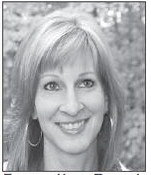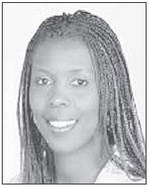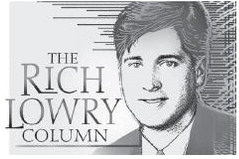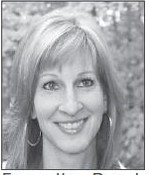Farewell, Jimmy


I swallowed hard last week and blinked away tears — the day I learned that Jimmy Carter had died. Yes, I knew it was coming, but I’ve always had a special place in my heart for him, ever since I first learned about this peanut farmer from Plains who went on to become our 39th president. I’ve read his books and followed him throughout my life. You see, there’s something truly remarkable about a man who traded the trappings of presidential power for a hammer and nails, building homes for those in need through Habitat for Humanity. While today’s political landscape often feels like a circus of ego and self-interests, Carter stood apart as a beacon of what public service should be — honest, humble, and genuinely focused on working together to make the world a better place, for all.
Beloved and respected by Georgians on both sides of the political divide, James Earl Carter, Jr., was one of us — a Southerner through and through, who worked hard and rose to become the 76th governor of Georgia, the 39th president of the U.S., a 2002 Nobel Peace Prize laureate and a world renowned humanitarian.
Carter was the only president who boasted deep Georgia roots like me, and as of October of last year, he was the only former U.S. president to become a centenarian. He died on December 29, 2024.
Rising to Power
Carter was born on Oct. 1, 1924, in the small farming town of Plains and grew up on a dirt road in the nearby community of Archery. After high school, he attended Georgia Southwestern College in Americus and Georgia Institute of Technology — my alma mater — before receiving an appointment to the U.S. Naval Academy in Annapolis. He married Rosalynn Smith (also of Plains) and was an ensign aboard the USS Wyoming before becoming a submariner, serving in both the Atlantic and Pacific fleets and rising to the rank of lieutenant.
“When his father passed away in 1953, he resigned from the Navy and returned to Plains to manage the family businesses,” says Tony Clark, public affairs director at the Jimmy Carter Presidential Library and Museum in Atlanta. “Most people know that the Carters were peanut farmers, but they also ran a seed and farm supply company there in Plains.”
Carter immediately dove into community volunteerism, lending his vision and voice to local boards of education, the hospital authority and the library. He was elected to the state Senate in 1962, and eight years later he became Georgia’s governor.
Then in 1976, Carter, a darkhorse Democratic contender, narrowly defeated Gerald Ford to become U.S. president. He held office from 1977 to 1981.
Domestically, Carter created a national energy policy, deregulated petroleum prices and the transportation industry, reformed civil service, and expanded environmental protections including 103 million acres in Alaska. He signed into law the Clean Air Act Amendments of 1977, which strengthened air quality standards. He also established the Department of Education and bolstered Social Security.
In foreign affairs, he secured the ratification of the Panama Canal Treaty, brokered peace between Egypt and Israel through the Camp David Accords in 1978, normalized relations with China, and negotiated SALT II with the Soviet Union, capping each country’s nuclear arsenals.
Then in 1981, when the Reagans won and moved into the White House, the Carters moved back to Plains — not to retire, but to begin a new chapter in their lives.
“In everything he’s ever done, he’s given it his all — in the Navy, as governor, as president and even afterward,” Clark says. “It’s how he lived continued from page
his entire life.”
Farms and Faith
Though farming has been a cornerstone of Plains’ economy for generations, tourism became a significant industry shortly after Carter entered the political arena.
“People come here from all over the world,” says Carter’s niece, Kim Fuller of Plains. “They loved President and Mrs. Carter, and they come here to learn more about their lives and honor them.”
The town is proudly home to four national historic sites managed by the National Park Service (NPS): Carter’s boyhood farm, the old Plains High School, the depot that once doubled as his campaign headquarters, along with the existing family residence (currently closed to the public).
These visitors wander around the Rosalynn Carter Butterfly Trail, take one of the self-guided tours around Plains, shop in stores filled with Carter collectibles, browse the memorabilia in the Billy Carter (Jimmy Carter’s brother) Museum, eat at a little cafe and ride the SAM Shortline Railroad. Attendance is expected to surge now that Carter has passed away, due to his decision to be buried alongside his beloved Rosalynn near their Plains home.
In the decades before 2020, many made the pilgrimage to attend Maranatha Baptist Church, where Carter, a devout Christian, was a deacon and taught Sunday school.
“The church was packed back then — a full house every Sunday,” Fuller says. “[My uncle] could give a deep perspective on his lessons, and people were just in awe of him.”
Citing scripture and drawing strength from prayer throughout his life, Carter encouraged tens of thousands of Maranatha guests to study the Bible, pursue spiritual journeys and grow closer to God.
“And afterward, he’d pose for a photo with them,” Fuller adds. “He’s always lived his faith and has never minded sharing his faith with others. His faith is who he is.” Hammers and Homes
A few years after the Carters returned to their hometown from Washington, D.C., Habitat for Humanity co-founder, Millard Fuller of Americus sent the couple a letter suggesting 15 ways they could help elevate the organization — from giving money to volunteering to work on job sites to making public appearances. Believing in the mission of building safe, affordable housing for lowincome families, the Carters eventually did all 15 items on the list. In the fall of 1984, they took part in the first Jimmy and Rosalynn Carter Work Project.
Since that week, the Jimmy and Rosalynn Work Project has deployed 108,100 volunteers to 14 countries to build 4,447 affordable homes for deserving partner families.
As Habitat grew with affiliates emerging throughout Georgia and beyond and home-building projects spanning the globe, the organization considered moving the headquarters from Georgia. Carter was instrumental in keeping Habitat in Georgia.
“Through their engagement and leadership, the Carters have helped make it possible for so many families in Georgia and around the world to have affordable housing,” Habitat’s CEO Jonathan Reckford says. “Helping Habitat was a way he could put his faith into action. In fact, he’s said that he gained more from the experience of volunteering than the homeowners did.”
The Carter Center
In 1982, President and Rosalynn Carter founded The Carter Center, a nonpartisan, nonprofit based in Atlanta.
“He imagined a place here in Georgia, like Camp David, where people could come together—work together— to address needs existing in the world,” says Paige Alexander, CEO of the Carter Center.
The Center’s achievements are vast, including protecting and advancing human rights; establishing and strengthening democracies; and furthering avenues to peace. Carter was awarded the 2002 Nobel Peace Prize for his work in these areas.
On the health front, the center led a coalition that has reduced Guinea worm disease by 99.99%, making it likely to be the first human disease since smallpox to be eradicated.
The center’s work to distribute Mectizan helped to eliminate river blindness in Colombia, Ecuador, Mexico and Guatemala.
“He always said that, ‘Big things are possible when we work together,’ and he was right,” she says.
According to Alexander, the Carters worked at the center a week out of every month — talking to the staff, holding hands as they walked down the hall, turning off lights in empty rooms and adjusting thermostats — until just before the pandemic.
“People of Georgia admired his strong moral compass and leadership,” she says. “He was a homegrown son who went to the ends of the road on every continent to create better, more fulfilling lives for people — many who’ve been overlooked.
“His legacy in Georgia? His legacy is that he was one of us!”






out of
Posted on